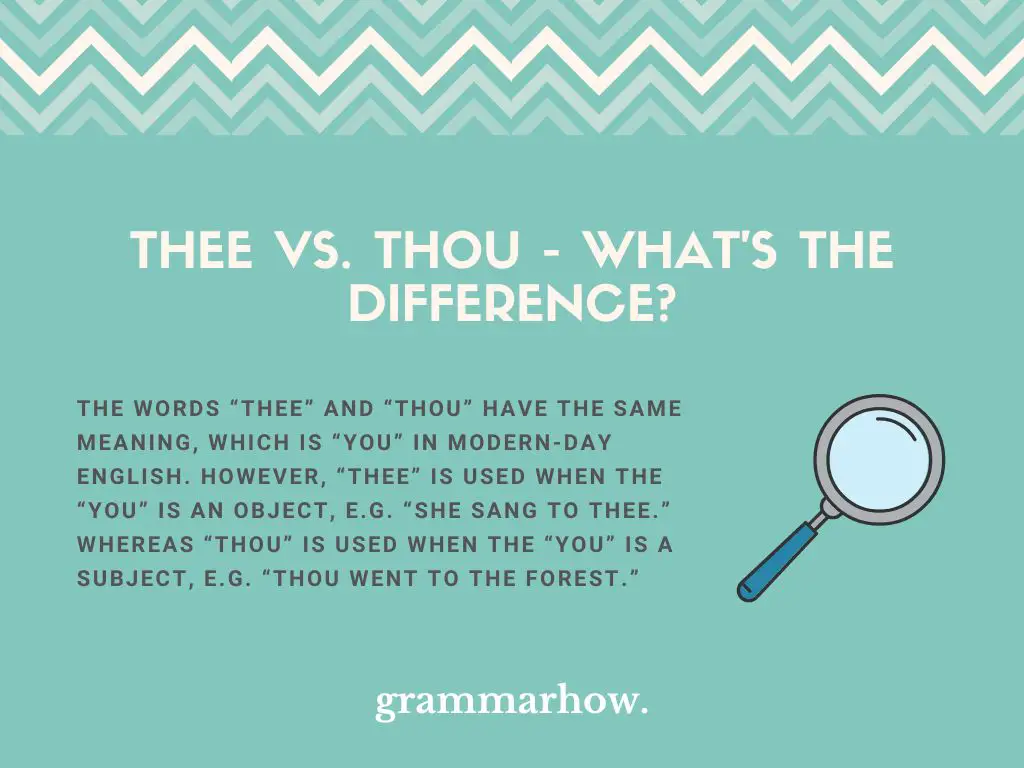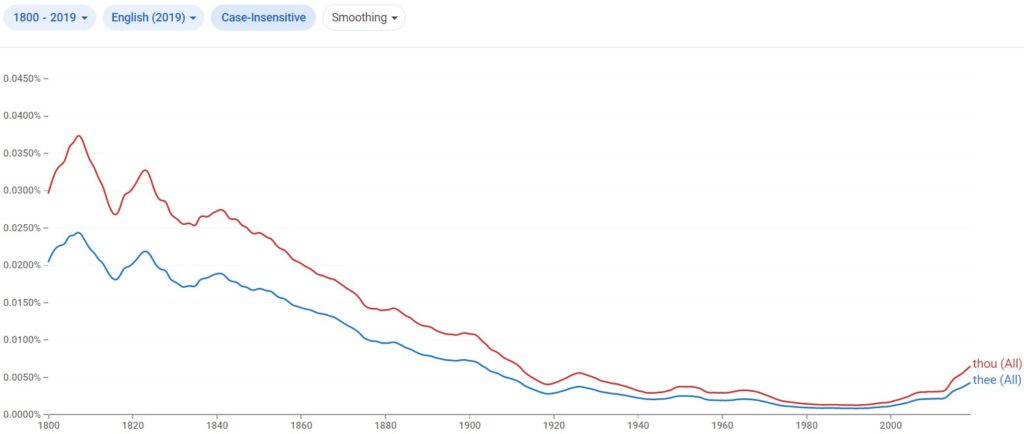The words “thee” and “thou” have been around for centuries, and although they have since been replaced, they still come up today in modern English. This page looks at the terms’ meanings and explains their differences.
Thee vs. Thou – What’s the Difference?
The words “thee” and “thou” have the same meaning, which is “you” in modern-day English. However, “thee” is used when the “you” is an object, e.g. “She sang to thee.” Whereas “thou” is used when the “you” is a subject, e.g. “Thou went to the forest.”

The Cambridge Dictionary states that the word “thou” is an archaic pronoun used to mean “you”, the Cambridge Dictionary also states that “thee” is listed as the object form of the word “thou.”
There are some occasions when these pronouns are still used quite commonly today. For example, you will often see them appearing in religious texts or church ceremonies such as weddings when they say, “With this ring, I thee wed.”
Also, in parts of the north of England, it is still quite common to hear people using the terms and other variations such as “tha” to mean “you.”
The difference between “thee” and “thou” is that “thee” is used when the person you are talking to is the object of the sentence, and “thou” is used when the person is the subject.
Here are some examples: Please note that in old English, the other words in the sentence would often be different too, such as “have” would become “hast.” However, for the purpose of these examples, modern words have been used to replace them.
- When I arrive, thou will see my new appearance.
- Thou know that he is not a good man.
- Have thou ever read the bible?
- He gave it to thee yesterday.
- I am sure that she loves thee dearly.
Thee
The word “thee” is the object version of the pronoun “you.” It is an old word that is not that common in modern-day English because it has been replaced by the term “you”, which means both “thee” and “thou.” However, although uncommon in today’s English, it is still used in colloquial spoken English in some parts of the UK, such as Yorkshire.
Here are some examples to show the use of the “thee” in a sentence:
- She gave thee all her love and affection.
- That man will never give thee children, so you shouldn’t marry him.
- I am glad that thee were invited to the function.
- I will show thee my true intentions.
Thou
The word “thou” is the subject pronoun version of the term “you.” It is an old word that is not really in use anymore, except for in a few regions of the UK, although in these regions, “tha” is more common as the subject version of “you” and “thee” as the object version.
Nonetheless, you will still come across the term “thou” in written English, especially if you are reading Shakespeare or literature from the same period.
Here are some examples of how “thou” can be used in a sentence
- Thou must display to me that you know how to get there.
- I think that thou can redeem yourself from your evil doings.
- We believe that thou have become the best father.
- I hope that thou shall wait for my return.
Which Is Used the Most?
The Google Ngram shows us that both words have declined steadily for 200 years. However, “thou” has always been more common than “thee”, probably because it is more common to use active sentences with subject pronouns rather than passive ones with object pronouns; therefore, more sentences would use “thou.”

Historically both words have been more common in British English than in American English, but still, neither are massively common today in written English.
Final Thoughts
The words “thee” and “thou” have the same meaning, which is “you.” However, “thee” is used when the person is the object of the sentence and “thou” is used when the person is the subject. They are not really used in modern-day written English, except perhaps in religious texts.
